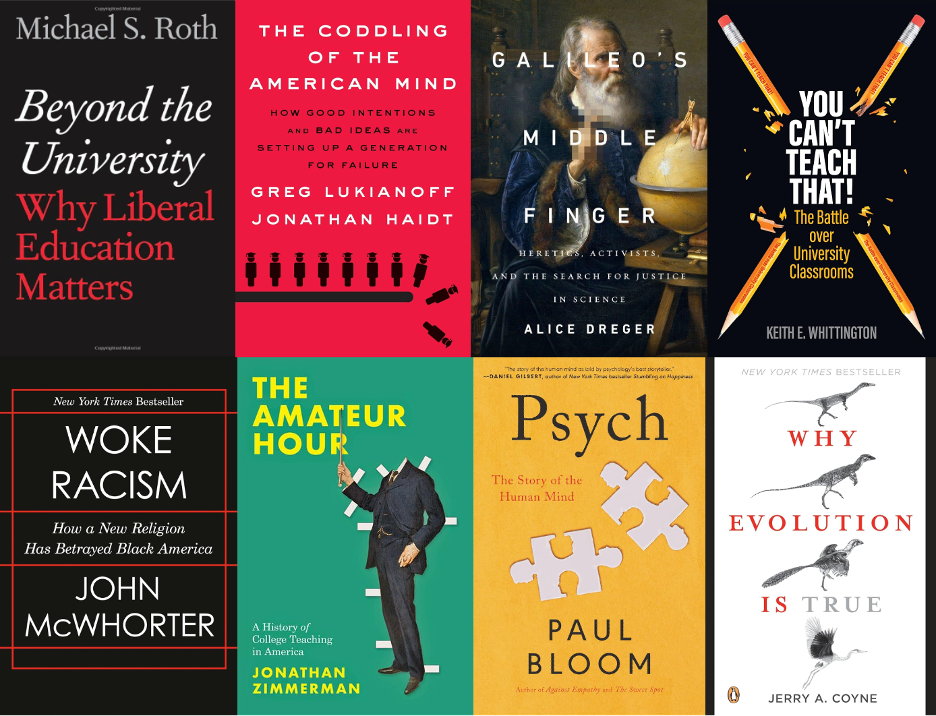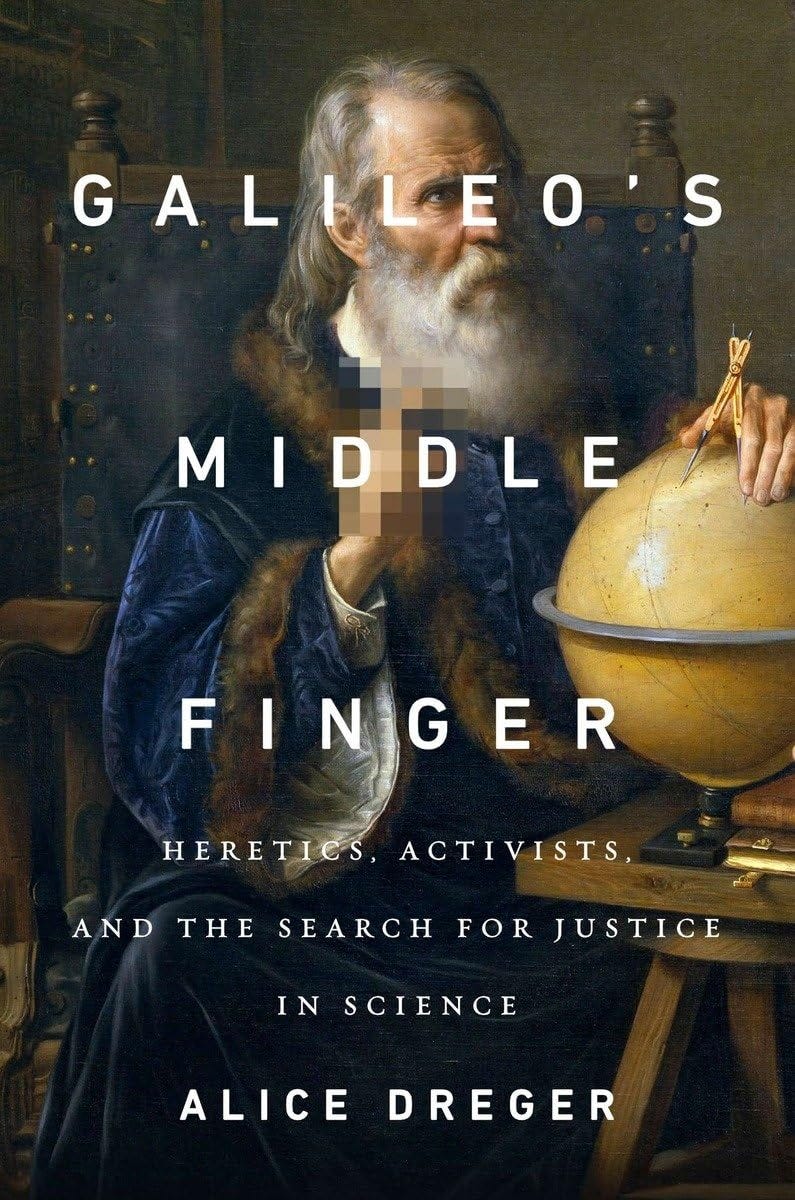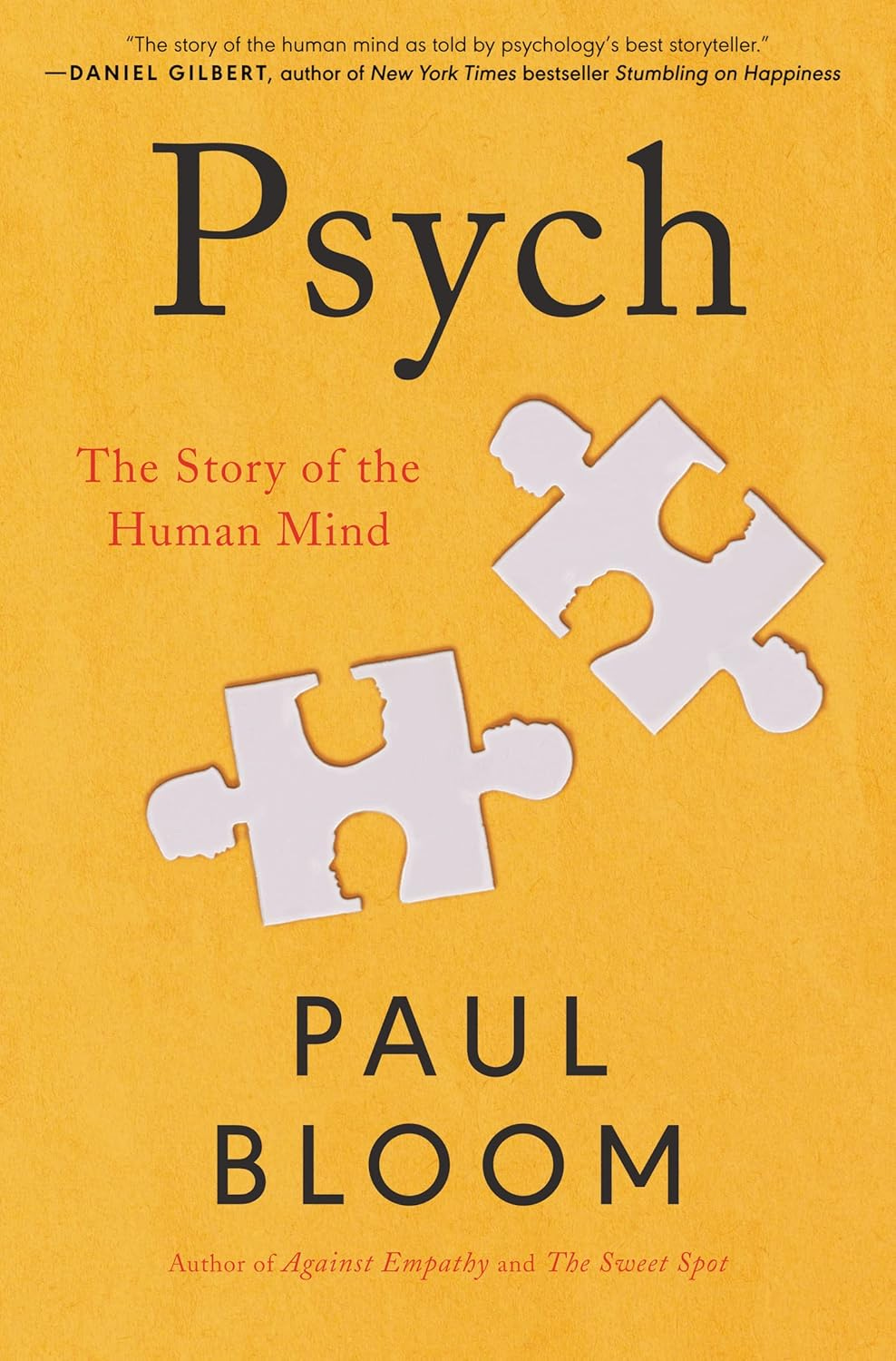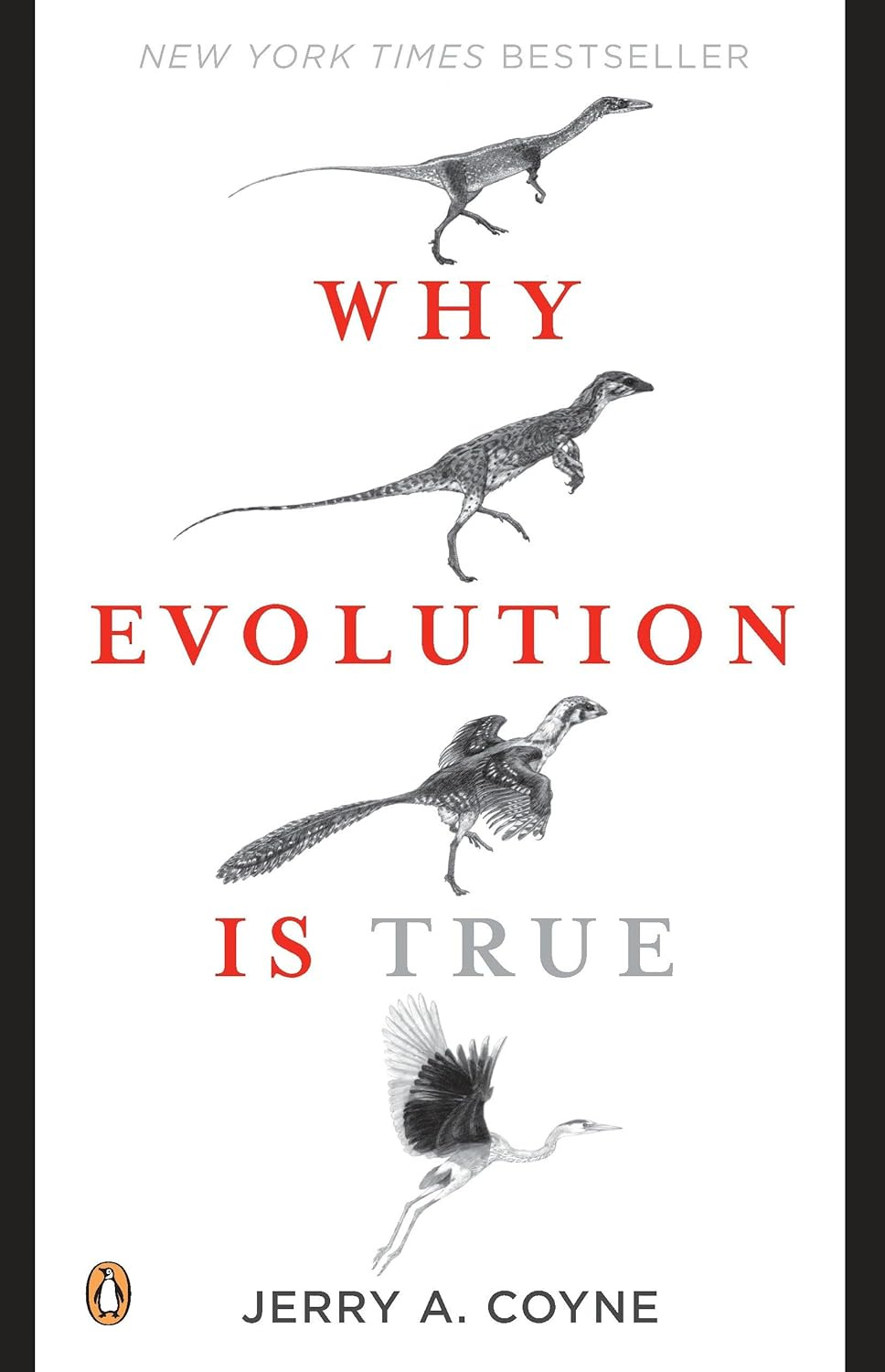Some of you may know that I daylight as the Director of Communications and Events at Heterodox Academy (HxA), an organization that I’ve also been an active member of since 2017. Some of you may further know that HxA just hosted its conference in NYC a couple weeks ago. It got me thinking: We have tons of members writing really great books on all sorts of topics. This month, I wanted to share some of my favorite books by some of our most prominent members. This is not an exhaustive list at all, but these are the ones that I’ve read (and can therefore recommend since I only recommend what I’ve read!) and think you should read too.
Happy reading!
Beyond the University: Why Liberal Education Matters
By Michael Roth | Published 2014 (Yale University Press)
I’m a big believer in education for the sake of learning – not just economic ROI. Michael Roth, president of Wesleyan University, seems to agree. In his book, he argues that liberal education is paramount, perhaps even more than vocational education. This is a good short read on the value of classical liberal education that goes beyond the high-intensity research focused, job training focus that takes up most the space in today’s conversation on higher education. Roth was on our presidential plenary panel at the HxA conference and had some spicy debate with Dartmouth president Sian Beilock.
The Coddling of the American Mind: How Good Intentions and Bad Ideas Are Setting Up a Generation for Failure
By Greg Lukianoff and Jonathan Haidt | Published 2018 (Penguin Press)
HxA was founded by Haidt and Lukianoff runs the free speech organization FIRE. In 2018 they published a bombshell book that really put the idea of coddling culture – which also has taken over universities in many ways – on the map for the general public. Much of what you may have heard of – things like “safe spaces” and “trigger warnings” – are discussed in this book. A core idea at HxA is that ideas shouldn’t be off limits just because they are politically incorrect or may offend someone. Ideas get stronger with discussion, not with silence. It’s a great book if you haven’t already read it.
Galileo's Middle Finger: Heretics, Activists, and the Search for Justice in Science
By Alice Dreger | Published 2015 (Penguin Press)
I have the great privilege of working with Alice Dreger every day (as she also transitioned from HxA member to HxA staffer!), yet somehow, I didn’t get to reading her book until last year! This is one of the best books I read last year. Not only because Dreger is a delightful writer, but she also educated me on the stories she told (including on Michael Bailey’s research controversies that I knew very little about in retrospect!) and the tandem of truth and social justice – a take deserving far more attention that I think it gets in our space. A must add to your TBR!
You Can't Teach That!: The Battle over University Classrooms
By Keith E. Whittington | Published 2024 (Polity) | Read my review
I wanted to be an academic to teach. The classroom is a special place with special power. But some, primarily in red states and the GOP, are trying to take that power away from educators. Whittington expertly reviews the legal cases around academic freedom issues in a clear and accessible way. The book was also the influence for my recent article “The Power of the Classroom” published in HxA’s new magazine, inquisitive. If you are an educator or are curious about the legality of laws banning content in classrooms, this is a must read.
Woke Racism: How a New Religion Has Betrayed Black America
By John McWhorter | Published 2021 (Portfolio) | Read my review
The last ten years have seen a ‘great awokening’ in our culture. Many, including John McWhorter in this book, compare “wokeness” to religion – and honestly makes a hell of a convincing case for it. McWhorter is part of a growing group of black intellectuals who forcefully pushback against victimhood narratives and the need for “white saviors”. In this book he also makes the case that such extreme wokeness actively harms mobility of black people in society. It’s provocative and worth a read.
The Amateur Hour: A History of College Teaching in America
By Jonathan Zimmerman | Published 2020 (Johns Hopkins University Press)
People complain about teaching a lot. I know I do! And it’s because university educators get little – if any – training in teaching and then are thrown into the classroom to copy what they’ve experienced themselves as students. The result is job practices that have barely changed in 150+ years. Zimmerman writes one of my favorite books on the history of higher ed, specifically about the historical phases of teaching practices. It’s a wonderful read.
Psych: The Story of the Human Mind
By Paul Bloom | Published 2023 (Ecco) | Read my review
As a psychologist, I of course am familiar with Paul Bloom’s work. And in 2023 he published what could be used as a Psych 101 textbook: a phenomenal overview of what we know about psychology without all the fluff and scientific garbage that most intro psych textbooks are filled with. As an expert writer, Bloom’s book is useful, enjoyable, and important – a rare accomplishment for popular science books.
Why Evolution is True
By Jerry C. Coyne | Published 2009 (Penguin Press)
When you study evolution, it’s hard to not come across folks like Jerry Coyne. His biggest book, Why Evolution is True, forcefully sets out the case for, well, why evolution – and not creationism – is true. He is unapologetically against any compatibilism between religion and science. I find it refreshing. This book was one of the first popular evolutionary science books I read in college. But what made it more interesting was in the conclusion of the book where he called out my chosen field – evolutionary psychology – as bunk. My PhD advisor and a student of his responded, and Coyne as since switched his tune. But I doubt he’ll change his tune on religion.












